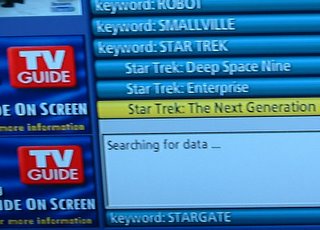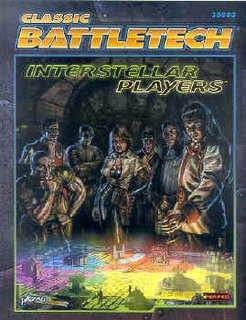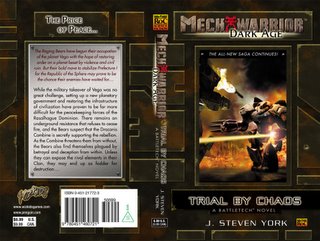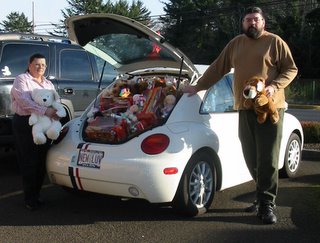What do an Amazon review and a Rorschach Test have in common?
Answer: they both usually tell you more about the person doing the reporting than the thing they're reporting on.
It's a curious artifact of user-written reviews, be they of books, or movies, or coffee-makers, that they often give you a peep-hole into the reviewers'lives and thought processes. Often, there's a voyeuristic quality to reading them, even to the extent of making me feel a little guilty sometimes. It's like standing outside someone's window after dark, looking in a them as they've unwittingly opened the curtains.
In writing reviews, people reveal their own prejudices, desires, passions, and failings. As a good book tries to challenge and expand the reader's perceptions, it often runs straight into peoples limits, be they emotional, intellectual, educational, or social, and in reviews, they dutifully report those impacts, often with little more idea of what really happened than a gold-fish bumping an aquarium wall.
(As an example, a recent criticism of one of my works addresses a scene in which the hero encounters what is apparently an evil version of themselves, then asserts that the idea was somehow derived from the 1983 movie
Superman III. Never mind that the comic-book Superman has been dealing with his own twisted "Bizzaro" counterpart since 1958, or that the concept of the evil-counterpart can be found in many ancient mythologies and has been used countless times in fiction since.
The would-be critic could have, with some justification, accused me of resorting to a cliche and emerged free-and-clear. Instead, they had to accuse me of stealing from a 1983 movie they happened to be familiar with, and demonstrate that the depth of their knowledge doesn't much exceed that of the kiddy-pool.
Or an aquarium.
Bonk! "What was that?")
When you're reading reviews of some product, or someone else's work, then it can be amusing, even entertaining. But when you're reading reviews of your own work, it can be frustrating, even infuriating, as these revealing little windows most often open in negative reviews. It's frustrating to know that many people take these reviews at face value, rather than as isolated, and very subjective reports of someone's reading experience.
Take for example, Amazon.com. A typical mid-list or lower book (where most of us live) will get no more than a hand-full of reviews, hardly enough to be statistically relevant even if they were pulled at random from a larger pool. But they aren't random. They're self-selecting. Usually they're either (and author's live for these) people who made some special connection with a book and want to share it, or somebody who had a very negative experience with the book and feel compelled to warn others, or perhaps almost as often, they're somebody with an independent agenda whose path just happened to cross over with the book.
So, what's wrong with that? Well, nothing, at least with the first two. But all these things should come with a "your mileage may vary" disclaimer. Just because one person loved a book doesn't mean you will too. It's a positive sign, but nothing conclusive.
Same with the negative experience, only more so. People have lots of reasons for hating books, and many of them have little to do with the quality of the book itself. If you've decided you hate science-fiction, you will probably not enjoy a science-fiction book no matter how well written. You may also hate a technothriller, or a futuristic romance that uses science-fiction trappings. But that doesn't mean there's anything objectively wrong with the book. It pushed your buttons in a bad way, but not everyone comes equipped with the same set of buttons.
These sorts of prejudiced can be more subtle. Some readers love rich, poetic, prose, and could care less about plot or character. Some demand a cracking-good story, and could care less about how the words are put together. Some people may have trouble identifying with a viewpoint character with a different gender than their own, or a different culture.
Speaking personally, there are best-selling authors I can't read, and others I just don't enjoy. But I know, given the numbers of people buying their books, that the writing is obviously exceptional in some way I'm not receptive to, of that it has shortcomings I'm especially sensitive to which overwhelm its virtues.
But then there are the agenda people, and they are legion. The most obvious ones have political agendas. Look at viewer written reviews of movies like "Fahrenheit 911," or "Broke Back Mountain," or "Syriana," and you'll likely find most of them are far more about the author's politics, religion and world-view than about the movies in question. But those are obvious hot-button works. Experience has shown that even a movie like "Forest Gump" can become intensely politicized, not so much because of the movie itself, but because it provides a canvas on which people can project their own agendas.
Of course not all agendas are so obvious, large, or even logical. For many people I encounter in the type of tie-in novel that I write it takes the form of some purity test. Some people judge Star Trek fiction, for instance, based on which characters (or series, or eras) that they either like or hate. Never mind if you've written the ultimate Wesley Crusher story, if they hate Wesley, then they won't give you the time of day.
With my MechWarrior Dark Age novels, it's often about the division between the "Classic fatalities" era, and the rebooted and later "Dark Age" timeline. Many old gamers are annoyed about the reboot and vent themselves at those of us who write "Dark Age" books. Well, guess what? Nobody gave us a choice. As with all tie-in fiction, the license owner calls the big shots, not the author. You write what they tell you to write, or they just get somebody else to write it. I always write the best book I can within the parameters given, but I almost never get any say in those parameters.
Then there are the "deceased author" properties. I've done this sort of thing twice now, first with the "Bolo" novellas I co-authored a few years back, based on the work of the late, great, Keith Laumer. More recently, I've done a trilogy of novels set in the world of Robert E. Howard's Conan.
There, one encounters the self-appointed guardians of said author's work. And there, the agendas are spread out, hidden, like mines in a mine-field. Only in politics and religion will you otherwise find passions that run so high, or opinions so deeply held. Add to this the personal stake (more on this later) many of these people attach to their roles, and it's trouble-on-a-stick as far as I'm concerned.
The most basic agenda is that nobody should sully the deceased author's work by expanding upon it. I'm ultimately sympathetic to people who don't want to
read such work. Certainly there are countless inferior sequels and follow-ons that were better left undone. But ultimately, the decision to initiate something like this depends on the will of the author's estate, and the decision to sustain it is based solely on the public's willingness to buy it. These people would obviously be best served by just ignoring the offending work and hoping it goes away (as it ultimately does in most case). But many of these folks feel compelled to read the work anyway (or at least, to pretend to read it so they can complain about it).
Then there's the agenda of how the world and/or characters should be presented, and what kind of stories can be told in it. For example, some fans of Keith Laumer wrote Amazon reviews complaining about how the follow-on books portrayed Bolos (sentient, cybernetic, fighting machines) as having human commanders on-board.
As a fan, I understand that. Most of Laumer's Bolo stories concern incarnations of Bolos that operate entirely autonomously. But he also established in his published (published during his lifetime, I might) Bolo timeline that manned Bolos of various types were used at various points in their long and ongoing history. So what this says about the reviewer is perhaps that they don't know their Bolos, or Laumer's work, as well as they think they do.
As a writer, I also understand that while most of Laumer's Bolo works were stand-alone short-stories, we were writing longer-form works, where it would be difficult to sustain with a gigantic cybernetic tank as a protagonist for 300 pages. Ultimately, having humans in the picture, and dealing with the relationship between human commander and fighting machine, made for much better story-telling in the long-form.
Finally, they complained that the stories had a different character, dealing more with action and large-scale combat than the thoughtful themes and lighting-fast thinking typical of Laumer's short-stories. There, I agree to some extent. Laumer's stories are less about war than about the fundamental nature of warriors. A recurring theme is that the ultimate warrior might actually be the definition of a perfect being, and that such a being might finally be the best champion of peace and reason possible.
We, on the other hand, were given the directive to write slam-bang combat, big battles, lots of action. Why? Well, the publisher knew from experience, that's what sells, and I imagine the estate was very happy about the selling part. I gave the publisher what they wanted, but I also worked very hard to put in as much as I could of what I loved about those Laumer stories.
The result was a compromise that could never be mistaken, even on a dark, foggy, night, for something Laumer would have written. But I'm proud of our work on those books, and I personally don't feel I dishonored the author at all. I'd gladly trade it all for one more good Bolo story from Laumer itself, but that isn't happening. So instead, we hopefully made some money for his heirs, entertained a bunch of people, keep Laumer's name and his creations from slipping into obscurity, and hopefully tricked some unsuspecting readers into going back and checking out his original work for the first time.
What's wrong with that? Plenty, apparently. It just depends on who you ask. People found things to complain about on Amazon. But the books sold well enough to keep the series going for quite a while, so some silent multitude was out there enjoying them. That's what counts.
That's the bottom-line. If it doesn't sell, it won't get done, and I suppose that's a form of agenda in itself. If you take offense with what is being done to the Beloved Author's work, you may find yourself compelled to do what you can to actively sabotage it in the marketplace. Write scathing reviews (maybe even under a multiple names). Often the author finds themselves in the miserable position of being chastised, not for the book they wrote, but for the book they didn't write, the one "proper" that exists only in the reviewer's mind.
As I said, there's often a personal component to all this, a dangerous element of ego and hubris. People seek to bolster their own apparent importance by attaching themselves to the "great man" (or woman), or to give themselves a sense of power and control by trashing the work of others. (I suspect this is just as common to academics as it is to fan-boys. But with rare exceptions, tie-in writers usually don't find themselves attacked by literary scholars, at least in any venue of commercial importance.)
In any case, the deceased author has nothing to say about their new "friends" or the interpretation of their work that they advocate. The curse of true fame: even a hundred years after you're dead, you can still have hanger's on. In any case, only with the most iconic of pop-culture characters are the expectations of such purists likely to have much to do with the expectations of the casual readers who will likey make up (if the book is successful anyway) most of a given book's audience.
From a writer's perspective, you just do the best you can do with what you're given to work with, cash the check, and hope for the best. There isn't much you can do about reviews, except to try and have a sense of humor. I've been told by wiser and more experienced literary heads than myself that one should simply never read reviews, professional or otherwise. There's nothing you can do about them, and nothing good that they can do for you or your future work.
I don't entirely agree with that, or I probably wouldn't have written this post (and maybe I shouldn't have, but too late now!), but I do get the point. Most anything you say to defend yourself is simply going to make you look bad. Sure, as with the Superman III bungle, you can point out factual errors, or defend why you made a given decision (or were required by and editor or licensor to do something in a certain way), but there's little point to it. The amature critic will find something else to complain about, heaping new invective to justify the one criticism that doesn't require justification at all: "I didn't enjoy it."
As I said, ultimately, the review says much about the reviewer, but the most valid thing they have to offer, their own, unadorned experience, is the usually the thing they feel least comfortable in expressing. It's a pity more people don't simply take a moment to post a simple, honest, "I liked it," or "I didn't like it." If they did, Amazon-type reviews might have a lot more value.
All told, perhaps the best response to critics comes in the form of a quote attributed to Truman Capote. "Where were you when the page was blank?"
(Actually, I'm not exactly through with this topic. The original title of this post was "Why I don't game," and this topic was just supposed to be a short-setup for that subject. Unfortunately, it ran away with me. I'll get back to the "Why I don't game" topic presently, and you'll then see how it relates to this essay.)






















